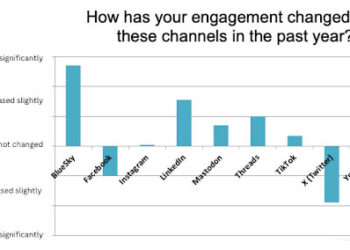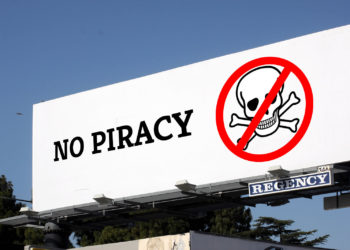
Casa del Smith survived a small catastrophe this weekend. We returned home from some R&R and the internet died. I had to spend some quality time on a phone explaining to a call center in the former colonies that no I couldn’t use the troubleshooting website because NO INTERNET. I also had to survive the fact that a significant number of the boy’s iPad games require an internet connection to function (told you it was a catastrophe). Anyway – the application of the appropriate code words “Trust me you’ll need to reset the BRAS profile on our line” followed by The Ceremonial Resetting of the Router (and the equally ceremonial scrabbling for the ‘bit of paper with the router details on it’) and we were back up and running. My relief at the resumption of normality was dashed when fellow Chef Michael Clarke shared the following article on Twitter; “2015 is the year the old internet finally died“.
There’s an arresting title.
These eyes still are working to the assumption that, to quote Marshal McLuhan
“We are today as far into the electric age as the Elizabethans had advanced into the typographic and mechanical age. And we are experiencing the same confusions and indecisions which they had felt when living simultaneously in two contrasted forms of experience.”
And here comes an author on one of those New Media startups (Vox Media – they’ve been around since 2003, they’re ancient, darlings, positively ancient) to say, actually, that thing you’ve been grappling with, it’s dead. Here’s the new, new things you’ve got to think about. It’s well worth the read.
This article from Joe Esposito on the subject of the mobile device and its impact upon us is also well worth reading. And then thinking about, and then reading again.
And then there’s this article by Benedict Evans “Search Discovery and Marketing” which is also a remarkably good read and also something to be thought about and then read again.
Now there’s going to be a couple more links in a moment, but first, some facts about Facebook:
In 2014 Facebook declared revenue of $12.4bn on the back of some 1.39 billion users, 1.19 billion of whom were mobile users [source]. That’s an annual revenue of $8.92 per user per year. Not very much at all. Yet because in the western world at least it’s the only game in town, (Google+ now being decomposed it seems, and Twitter, my personal favorite, being a niche operation with only 232 million users) it exerts a massive gravitational pull, despite only making a cup of coffee and a cookie per user per year (before costs and, um, taxes).
Now those links: “Facebooks Instant Articles Just Don’t Add Up for Publishers” and “The Facebook Reckoning” both of which refer to the recent pitch by Facebook to just let it host the publishers’ content, because the kids today can’t be bothered to wait a couple of seconds for an article in their timeline to load, so they don’t. “You let us sort that out for you ‘cos we have the tech. We’ll bring you… er what are we bringing them? Oh yeah, attention. We’ll be bringing you the attentions[sic] for your long form content that the kids can’t wait a few seconds for from your servers…” If you are wondering what Facebook’s strategy is here, I refer you to that number above and the fact that it really needs to go up an awful lot, at least an order of magnitude.
Long form content… the sort of thing that we do… I recommend that you do go an open up a tab for each of the items I’ve linked to and go and read them. I reckon there’s a solid hour of reading there, and realistically a good weekend or so of thinking about what it all means. Let me attempt to do a very high level digest for you.
Joe’s Kitchen Article: The [non tablet] mobile device (with all it’s sensors and context aware capabilities, powered by a massive cloud infrastructure) is a fundamentally different metaphor for the consumption and delivery of information to the user. That’s an actual user, the one holding the device and paying monthly for it. An additional thought: Consider carefully why Facebook bought the VR (virtual reality) company Oculus Rift. And why Google is still playing with Glass. VR is a very interesting metaphor for the representation of all sorts of information.
Benedict’s Article: It is no longer possible to consume all the works about a given subject, no matter how rarefied that subject may be. The Internet gives us everything. But it removes our ability to be aware of everything. And puts us in the hands of algorithms we don’t really understand. Algorithms can tell us what we are looking for but cannot tell us what we need to know about. This despite tracking us in a massively invasive way to better model us. Things like Google Now are an attempt to be better at helping us find stuff we didn’t know we needed to know, but even there it can’t do that thing that a good old fashioned librarian can do; namely “you’ve read that? You’ll be wanting to read this next. It’s over there”. The only proxy for that function is advertising, in order to raise the signal of the stuff you’ve just put out on the Internet (people who saw that, might be attracted to this, it’s over here). And you’ve got to decide whether you do ‘everything’ and accept the users will just mill around in soup of information, or whether you can curate the things and by design supply a limited experience at the heart of a value proposition. Also there’s a great crack about just how good PageRank is. Go read it.
The MIT Technology Review Article by Michael Wolff: Movies – Not Free – Netflix pays out $3 Billion a year. Amazon paid HBO something like $200 million for access to HBO content. Spotify pays the music business (if not the artists by and large) about 70% of its revenues. Facebook will pay the New York Times exactly $0 to host content on it’s servers. And so will Apple News, Google and the rest for their various ‘curatorial’ products. Somehow quality words are worth nothing, whilst sound and vision command good money. How did publishers get syndication so wrong? Well the answer is advertising. Because you can put an ad against any content and when you are after gross eyeballs, content is basically transposable, the cost to rent the eyeball drops to effectively zero. Content isn’t worth anything in and of itself, unless it happens to possess virality and thus draw a disproportionate number of eyeballs (see the Vox article). Publishers would be mad to get into bed with Facebook (or the newfangled Apple News with its proprietary format). Publishers will give up their brands and just become feedstock for social interactions, and it’s too late to undo that mistake made way back when the Internet was a mere babe — free access to content.
Ben Thompson’s Facebook Reckoning article: Yup, this Facebook deal is exactly like the one Darth Vader offered Lando Calrissian; bad and you’ve no choice but to take it (just like Lando). Why? Advertising. See above for the basic argument. But on a mobile device…things are different. Mobile Ads are terrible. What isn’t terrible? Facebook’s interface — the stream — and it can and does do what it ever it wants with it. That’s a massively powerful platform for advertising and it can be coupled to everything Facebook knows about you (whether on their app or on any other device you’ve ever accessed the big FB from). Apparently less than $10 per user per year is a really good monetization number and because Facebook is one of the very few places users go to directly (rather than via search etc) for their fix of social, It’s the de facto place to do powerful native advertising. Content providers can only build equivalent platforms for high value advertising by investing heavily in high value (i.e. expensive) content which is the exact opposite of what the current ad slot paradigm has delivered over the past 15 years. Subscriptions aren’t enough to make up the difference. Most Publishers are utterly screwed. So that Facebook deal of $0 but we’ll share some ad revenue with you from our ad system looks like a really good deal (pray I don’t alter the deal further…). It will drive content creators to write material that is highly viral, and that apparently will mean that it’s high quality.
That Vox Article: There once was an Internet where people who shared ideas and aesthetics, would coalesce to form communities; places where brilliance (and horror) would emerge. One could build sites that supported niches of content, and make money. That world is dead. And the reason for it is social media and the abstraction of a web of content into a commodity that now feeds the beast of Likes and Hashtags and Twitter mobs and Facebook timelines; the places where the kids are so impatient and a clickbait mentality is needed to survive; a place where scale is everything and the only thing. All hail The Social Graph (current value, less than 10 bucks per user, per year).
The Web of Words is Dead. Long live the new Web. The web of people as nodes, connected to each other via Mobile (and cloud powered, privacy gobbling) compute devices.
And I read these articles and their conflicting and contentious views on what constitutes good monetization and good quality content and whether long form content has a future or not (only if it’s viral and only as the cost of doing the other stuff that will bring in the social ad dollars, via a platform that regards the content producers in much the same way as a supermarket regards farmers) and frankly it doesn’t look good. If places like the New Yorker, The Grey Lady, The Guardian, Ars Technica and whatever your personal favorite locations are represent a future of a few small islands of true quality in a sea of muck, then we are not in a good place.
And I think about our world of scholarly communications and the tensions arising therein. No matter what the ideologues say – our world doesn’t cleave to the powerlaw economics of the wider web. The big five may control a majority of the content out there, but nearly half of what’s left belongs to a rich ecosystem of competitors who have specialized to their environments. They support multiple scholarly organizations with the various financial deals, organizations that are about membership and destination and the support and certification of communities. If the trends above apply equally to us, then that world will not be with us for much longer, and that doesn’t seem like a good thing to me. If you give your content away for free…well are you heading into deep waters where the really big predators lurk (is that why there’s venture capital interest in our world?). And what about all that long form content that we distribute? We tell ourselves and others that the value is intrinsic to the work, that it’s not substitutable, but that’s exactly the same argument the late great David Carr made in the excellent documentary on the New York Times (watch it), and they’ve taken the Facebook deal.
We look for value in new markets, because ours is pretty much mined out, and we think there are differentiators that mean we can unlock value from new places. But the current message from the web seems to be; $10 per user per year is the going rate for a successful offering. And there’s only a few places where you can get access to the scale of people needed to make that work economically. And worse, you need to hitch your horse to the train that wants to mine those people further in order to try and increase it to more than a cup of coffee and a cookie. Are we running parallel? Are we converging? Or can we stay in a divergent world, where the value in the content can be exploited to the benefit of all in enterprises where we can build all you can eat offerings and more curated and limited offerings according to what our diverse markets and users want and will value? Because Buzzfeed for Scholars sounds like a vision that would make Dante shudder.
Discussion
13 Thoughts on "Parallel Worlds? To What Extent are General Internet Trends Applicable to Scholarly Publishing?"
Clay Shirky’s quote on revolutions comes to mind:
http://sustainablejournalism.org/future-of-journalism/clay-shirky-on-journalisms-future-revolutions-get-worse-first
One of the things, it’s sort of the paradox of the revolutionary, when you believe that you’re undergoing a change that is really dramatic, you have to admit that your ability to predict the future is limited, and in real revolutions things get worse before they get better. If they’re not, then they’re not revolutions. That doesn’t happen, they’re not revolutions. They’re just improvements.
Hopefully he’s right and this is the “things get worse” phase, to be followed by things getting better.
It is certainly true that conceptual confusion is a necessary aspect of revolution, including technological revolutions. Even the language goes out of focus.
I nearly put in a couple of Clay quotes. He also talked about how the old things get broken before the new things come along…
I once upon a time developed a relatively detailed model of this sort of thing in my essay “The Structure of Technological Revolutions” found here as chapter 14:
http://www.amazon.com/History-Philosophy-Technology-George-Bugliarello/dp/0252004620/ref=sr_1_1?s=books&ie=UTF8&qid=1439901844&sr=1-1&keywords=9780252004629
As the title suggests, it is an adaptation of Kuhn’s model of scientific revolutions. Ever since then I have gone where the revolutions were and that is why I am here today. Interesting times.
The STM and scholarly publishing industry avoided the original sin of publishing on the web and instead of giving it away, created the site license (or, more accurately, “borrowed” the site license from enterprise software). Think where the industry would be without the site license.
I’ve been thinking long and hard on the Vox article you mentioned about the death of the old Internet and I think there are implications there for scholarly publishers, in particular with regard to discovery. The niche islands that societies will withstand the present tsunamis of social media and mobile devices, but they will be changed. Controlling that change, instead of being controlled by it, is the challenge.
So one thing I’m mulling, is whether OA articles are going to be subject to the same tensions as the ‘free’ material that went up 20 years ago when the newspapers went after the eyeballs. I look at predatory publishers and I wonder…
Discovery – yes. If you can be a reliable place that people come to for discovery – the value proposition of the a limited view, but really well curated (Benedict’s article).
This is very much a mulling out loud article. I have no answers!
David, I am puzzled by your “sea of muck” statement. Are you referring to popular culture, or what? Scholars and intellectuals are a tiny fraction of the global population.
Popular culture – it’s silly season here in the UK, it’s horrible reading the web at the moment. And to what extent might that poison the well so to speak for people inclined to try and make ‘high intrinsic value’ content work. I’m very aware that I sound a bit like one of those elderly curmudgeons lamenting a past, but the tension between ads and content seems to be skewing horribly towards the former, due to the impact of the like button.
One can usefully ponder why there isn’t a dislike button…
According to UNESCO, there are around 7M full-time equivalents in R&D, including researchers and support staff. About half of that is researchers. http://www.quora.com/How-many-academic-scientists-are-there-in-the-world-Said-another-way-what-is-the-total-number-of-scientists-worldwide-who-publish-their-work.
When it comes to the web and STEMs place in it we are talking about as my grandfather would say bupkis!
We really have no idea as to how many people read STEM articles, but it is probably only a hand full more than the 3.5 million practitioners.
So, does the state of the net affect or effect the community? I would guess not. I don’t see STEM people discussing or wringing their hands over the state of the net nor the “revolution” real or imaginary being on the front burner. What I see is that the internet has become just another tool in the researchers kit. In fact, for most of the population in the industrialized world the internet is just there! Much like a radio, TV or toaster.
This is fascinating. And of course as you read this, and the linked articles, the back of your mind (or mine anyway) just goes but. But. But.
To me the internet just (just!) changed the barriers to existing behaviour. Pertinent to us: we could copy stuff and disseminate it centuries ago (that’s why copyright was introduced). But it was hard work. The photocopier lowered the barriers a little but not much.
The internet lowered them substantially.
In our world we cited regularly, and if you the reader went to the stacks you might find the article (so long as it had been replaced correctly). It took dedication to do this regularly. Now we have hypertext (sometimes broken of course to complete the analogy). Perhaps we link/cite too much as a result of the lowered barriers. But I could access your citations without moving more than a few wrist and finger muscles.
So let’s look at already existing behaviour. And the roll of media here. I can’t substantiate this with a hyperlink but I would bet humans have used media (spoken voice, cave paintings, scrolls, parchments, books, radio, film, video and others) to gossip and entertain far more than they have to inform (and, via myths and fables, used entertainment to inform).
And as a result, as media commercialized, so we paid more in total (ie larger markets existed) for entertainment – gossip (think tabloids), drama, comedy, cats and kids doing daft things – than we have for broadsheet newspapers, documentaries, reference works, encyclopedias.
(The exception is perhaps religious texts, the Qu’ran, Bible etc – the core of life to many; myths and fables to some. Big big sales – though how much are they used after purchase?)
And audio-visual (theatre, film, TV) or audio (radio and more traditional oral) entertainment seems to be preferred over textual entertainment. Perhaps because reading is a learnt skill not a born one. It requires somehow less processing power than reading to have a pleasing effect .
And audio-visual is preferred over audio. Perhaps because audio only provides part of the messaging – we need the visual to really complete understanding.
Taking this on, 30 minute comedies tend to have larger audiences (and generate more revenue) than 90 minute dramas of equal quality (measured as, say, the top and/or median viewed in each category). Short form is a larger market than long form.
So our long-form, text-heavy market is about 4% of the overall information industry if Outsell is to be believed. We move well beyond the other side of the decimal point if you include music and film publishing.
So bring that together and we have a platform (the internet) that uniquely delivers text, audio and video media. Previously video and audio were the, generally, preferred media for receiving content. Entertainment content was preferred, generally, over information. Shorter forms over longer forms.
The internet, by my hypothesis, lowers barriers. Is it any surprise then that textual media commands the lowest price (and zero is a price) in this world? And short-form (Facebook, Twitter) leads.
One response (assuming we don’t have the option of an ad-supported, short-form scholarly communication industry!) perhaps has to begin with how can we effectively co-opt preferred media to augment (not displace) the long-form text that is at our core. This doesn’t mean Buzzfeed for Scholars. To date we have generally been ineffective with non-textual media. Perhaps because it’s been a bolt-on not a thought-through process with outcomes that meet users needs (more basic needs than trad market research tests perhaps).
But by gosh this long, textual answer hardly supports my argument.
A lot of interesting links and commentary here!
I think we can learn something from the fact that our industry has its own search engines (Google Scholar, PubMed, GeoRef, SSRN, etc.): there IS something special going on with the content. This has to do with the fact that researchers (not students, who use Google for the most part) are looking for small bits and unique things — the article that everybody else has *not* read, the discovery that everybody else has *not* already made, the unique needle in the haystack. This goes to the post’s point about serving niches, and not quite being subject to powerlaw economics. Or, page rank isn’t *always* the right answer to relevance ranking.
A second point where perhaps we should understand a parallel world — and here I add to David Smith’s curated list of links — is to think about the NY Times article about consumer shifts from buying things to buying experiences. If we think of publishers as selling content, we might get stuck; but if we think of selling experiences of some sort (interaction, interpretation, understanding, authors, community…), we might see something that publishers (and especially society- or university-based publishers) can work with. The NYT article is here:
http://www.nytimes.com/2015/08/14/business/economy/stores-suffer-from-a-shift-of-behavior-in-buyers.html
John



